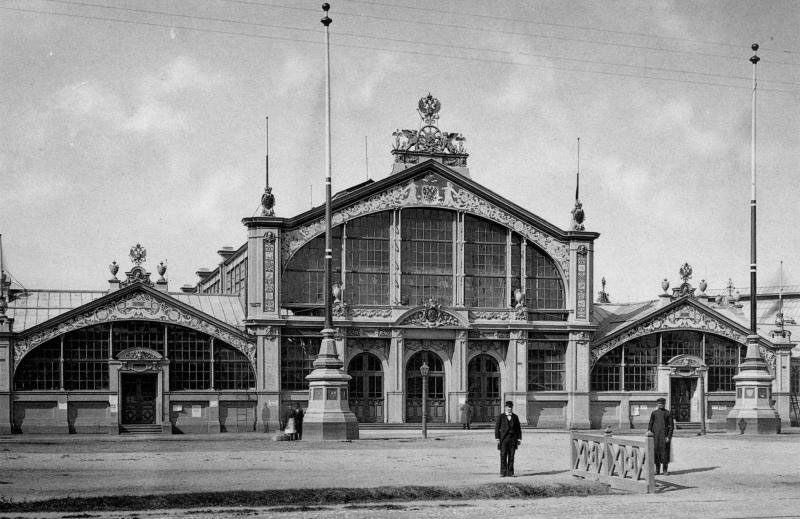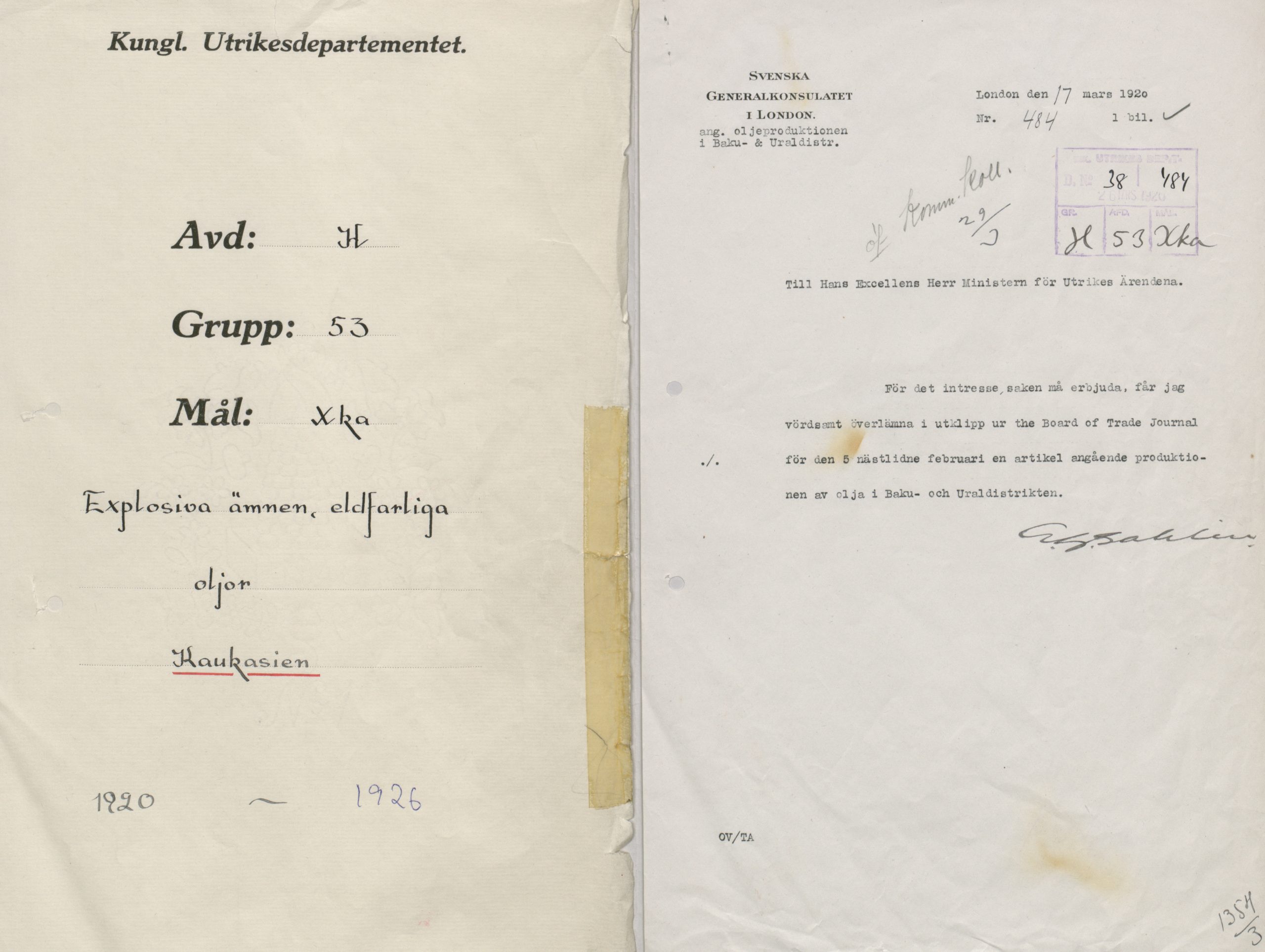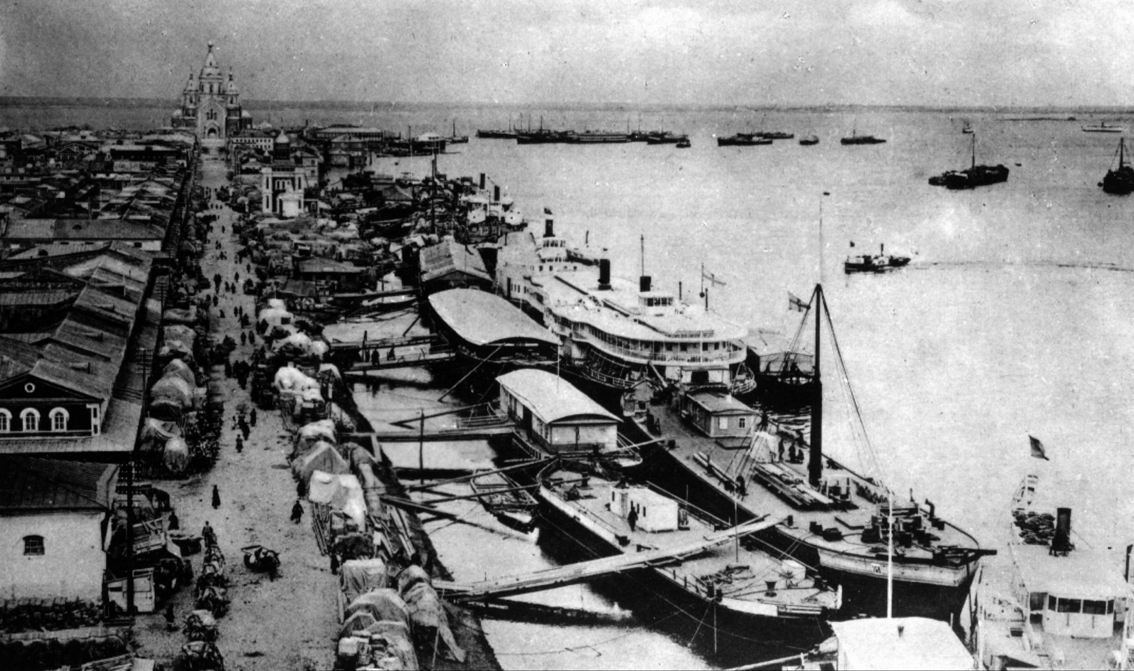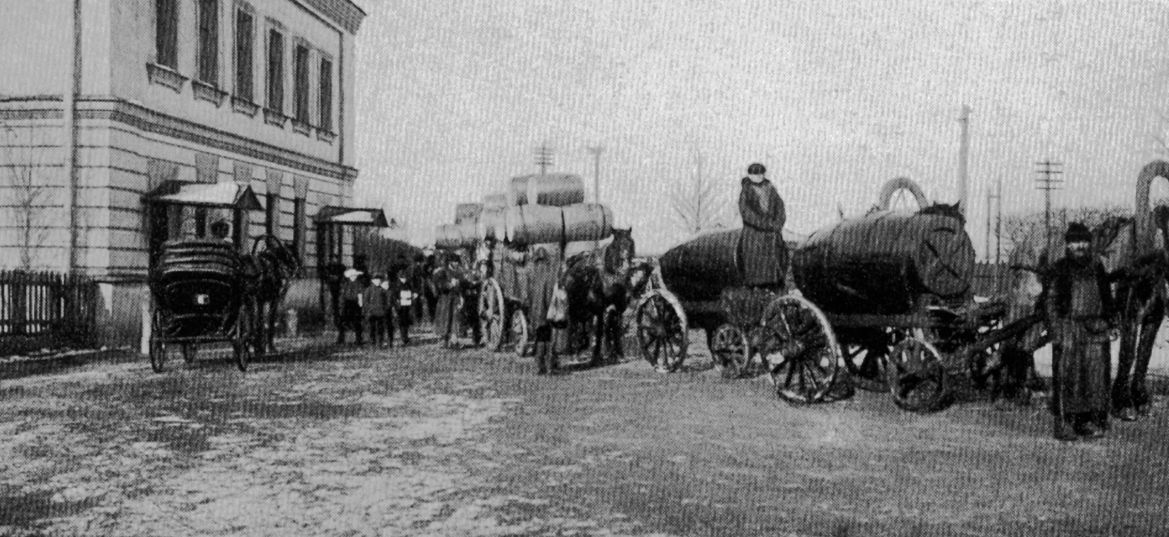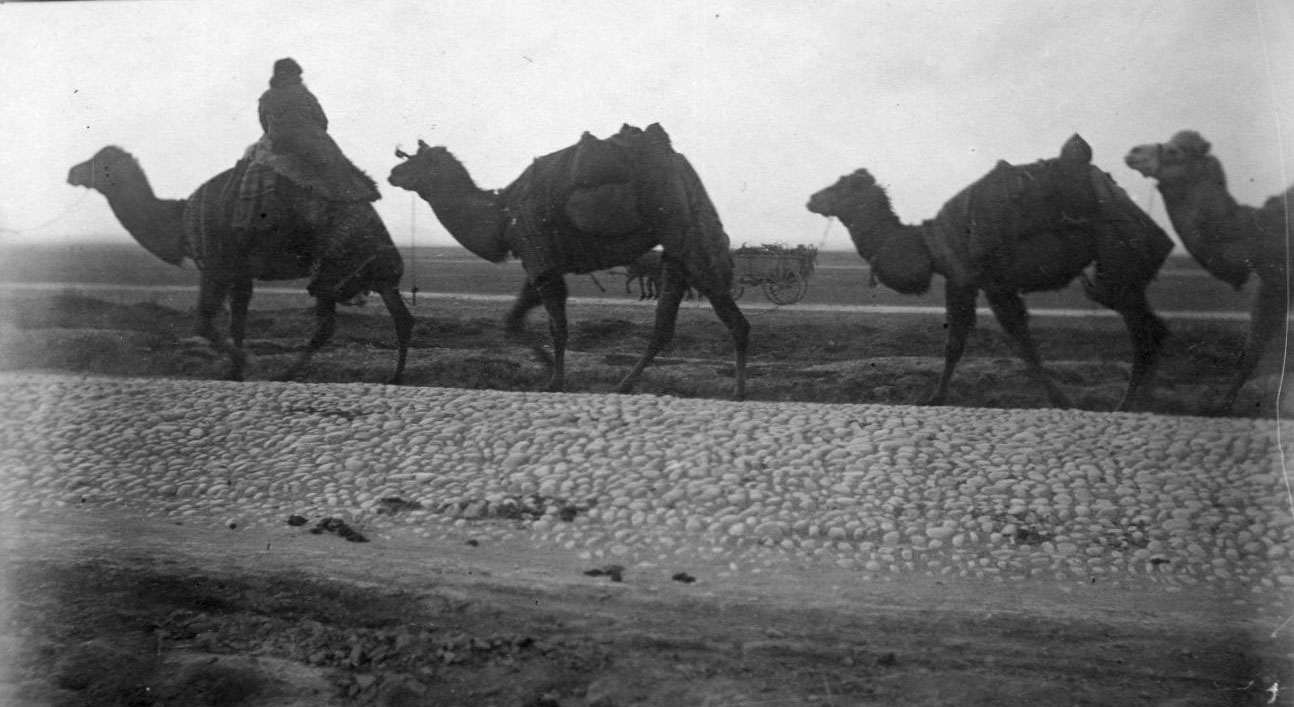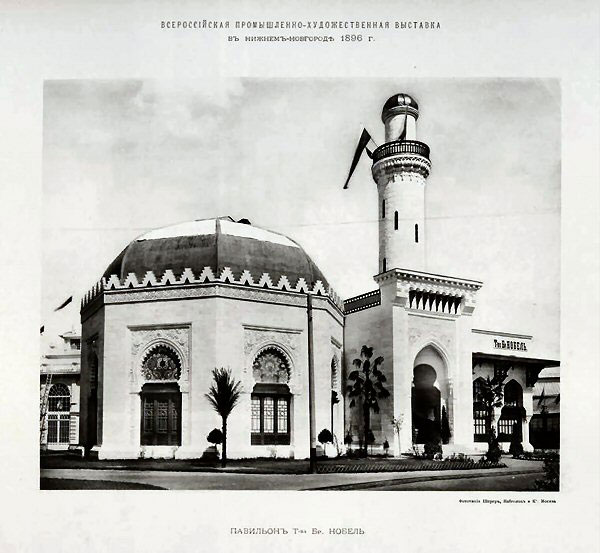
For a company like Branobel, the infrastructure of society is crucial. The new legislation on exploration permits in 1873 created completely new conditions for commercial oil extraction. The building of the extensive Trans-Siberian Railway is another example. Nobel also contributed to the building of schools, day nurseries, churches and hospitals.
An exhibition that led to a double eagle as reward
At the huge All-Russian Industry and Art Exhibition in Moscow in 1882, Branobel participated with a number of products related to the petrochemical industry, and won a bronze medal and a second prize. Among other things, visitors got to see huge oil burners for steam boilers.
“Nationalisation is a beautiful word for a very ugly thing.”
During the tumultuous years following the Russian Revolution, the power of the communist regime rapidly spread as far as Baku. In 1920, nationalisation was the beginning of the end for Branobel. Emanuel Nobel stated that “Nationalisation is a beautiful word for a very ugly thing.” But international companies soon started doing business with the new owners.
Tsar Nicholas’s coronation party is surrounded by drama
In the summer of 1896, the Russian imperial couple, Nicholas and Alexandra's coronation is celebrated with magnificent festivities, including an exhibition at which Branobel is represented. But the coronation party is surrounded by dramatic events.
The Bolsheviks march into Baku and Socialise Branobel
At the end of the First World War, the position in the southern Caucasus was complicated by many interested parties around the oil fields: Turks, Englishmen, Germans, Russian Bolsheviks and also severe antagonism between Armenians and Tatars (Mohammedans). In February 1917, the Tsar abdicates and, in June 1918, the Soviet Regime nationalises all private property.
The pivotal role of Azerbaijan oil and Baku
As early as the 15th century, Baku was an important international trading centre for merchants travelling between the East and Europe. Caravans of camels and merchant ships transported oil, salt, madder and saffron. In the 19th century, the rapid growth of the oil industry caused a total modernization. By the turn of the 20th century, Baku was one of the biggest industrial cities of the world.
The 1896 Nizhny Novgorod Exhibition
Branobel showcased the company and its activities at Russian industrial exhibitions. In 1896, the last one was held in Nizhny Novgorod. The company’s pavilion was specially designed in a “Mauritanian” style, containing, among other things, a huge panorama over Baku’s oil field.

